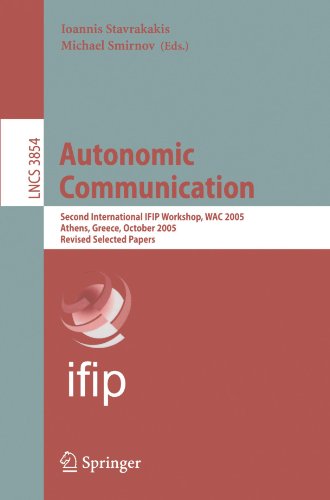

Most ebook files are in PDF format, so you can easily read them using various software such as Foxit Reader or directly on the Google Chrome browser.
Some ebook files are released by publishers in other formats such as .awz, .mobi, .epub, .fb2, etc. You may need to install specific software to read these formats on mobile/PC, such as Calibre.
Please read the tutorial at this link: https://ebookbell.com/faq
We offer FREE conversion to the popular formats you request; however, this may take some time. Therefore, right after payment, please email us, and we will try to provide the service as quickly as possible.
For some exceptional file formats or broken links (if any), please refrain from opening any disputes. Instead, email us first, and we will try to assist within a maximum of 6 hours.
EbookBell Team

4.8
104 reviewsThe Second IFIP Workshop on Autonomic Communication (WAC 2005) took place on October 2–5, 2005, in Athens, Greece. The previous (and first) edition of WAC took place in Berlin in 2004 and its next (and third) edition in Paris in 2006. The workshop was organized by the National and Kapodistrian University of Athens and was supported by the EU-funded IST-FET Autonomic Communication Coordination Action (ACCA – IST-6475). Additional support was provided by the EU-funded IST Network of Excellence E-NEXT (IST-506869). Finally, IFIP TC6 provided scientific sponsorship through Working Groups IFIP WG6. 6 (Management of Networks and Distributed Systems) and IFIP WG6. 3 (Performance of Communication Systems). The workshop was organized at a time when the – yet to be well defined – field of autonomic communication (AC) is attracting the interest of both the scientific community and the research funding organizations. The latter is manifested, on one hand, by the numerous recent relevant research exploratory forums, workshop panels, preliminary forward-looking position papers, research outlooks and frameworks and, on the other hand, by the commitment of the FET program of the European Commission in Europe to funding long-term research in this area for the next four years. Consequently, the second edition of WAC was highly exploratory and included a nice mix of technical work addressing some already identified problems and well-articulated ideas on the direction this field should take and the fundamental problems whose solution would enable autonomicity.